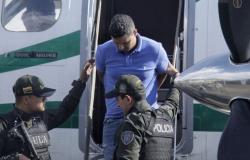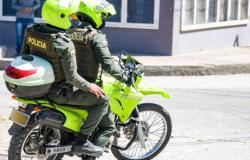Cartographies of Memory in La Araucanía
- More information on the Instagram account @cartografia.de.la.memoria
With the task of making visible to the present the traces left by state violence during the Chilean civil-military dictatorship, “Cartographies of Memory in La Araucanía” was born, a project framed in the commemorations of the 50 years of the coup d’état, and which seeks through photography to reinforce the commitment to care and respect for Human Rights.
This is a series of activities that are focused on visualizing and recognizing existing memory sites in the region through photographic images. To this end, a call was made with open registration so that young people and adults interested in photography could participate.
The initiative, led by Lissette Ruiz Aravena, visual artist, Master in photographic research and creation, and director of the project, plans to deploy in Temuco, Pitrufquén, Lautaro, Melipeuco, Angol and Villarrica in 2024, with the aim of documenting these sites in person. .
Currently, the selection of the participants is being carried out, who will receive a master class given by the prominent national photographer Leonora Vicuña, who resides in La Araucanía, who will speak about the importance of the image as a historical document and the protection of the collective memory of one or more territories.
After the selection work, the workshops will be held between June and August, which will culminate with staging of each exhibition by commune, to close the work with a regional exhibition in the Aula Magna of the Catholic University of Temuco and the preparation of the photographic catalog for the community.
“It is an instance to value the photographic image as an element object of collective and collaborative construction of historical memory, it is a visual contribution in an effort not to lose it in later generations, as a reference or guide of what is sought to improve at an institutional level. and social,” says Ruiz Aravena, regarding the project’s contribution to education and historical awareness in the region.
Innovation in documentation
The project aims to value the photographic image as a crucial element in the collective and collaborative construction of historical memory, visually contributing to the conservation of memory for future generations. One of the highlighted techniques of the project is the creation of a virtual cartography using the Padlet program, which allows attendees to upload images and indicative texts about the memory sites, thus creating a collective and collaborative work.
This seeks to make existing sites visible and make other places known to contribute to historical memory and the protection of Human Rights. A complex task, which the creator of the project herself points out that “these places go very unnoticed in the city, and others are in places that are not so accessible”, which has led human rights groups to make efforts to enhance memory routes, documentary publications and other efforts to make these sites visible.
In relation to the initiative, each workshop will have local photographers who will pose challenges that have to do with the way the images move and the techniques to avoid doing more of the same and present other ways of telling stories.
“We hope to have different photographic and documentation styles. We do not expect all images to be realistic images, but rather that through interpretation and artistic sensitivity series can emerge that narrate and put in context the person behind each disappeared or executed politician,” complements the visual artist.
“Cartographies of Memory in La Araucanía” joins other initiatives and geo-references of places with photographs in the country, however, this project seeks artistic cartography with critical thinking, beyond a map as a fixed configuration. “It pursues the idea of a possible route or path for visualization, also cartography or mapping to develop interdisciplinary social intervention projects that help generate debate and dialogue about social processes and conflicts that are commonly ignored or subalternized,” he points out.
“Cartographies of Memory” represents a significant effort to not forget our history and promote a culture of respect for human rights in the territory.
-
To find out more about what is happening in the world of science and culture, join our Cultívate community, El Mostrador’s Newsletter on these topics. Sign up for free HERE.






